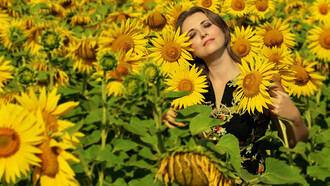Modern research is finally affirming what ancient civilizations have known for centuries: rest is not laziness but rather a form of medicine.
Rest is not a new idea. Across cultures and eras, it was treated as a source of healing, a sacred ritual, and a path to balance. From Egyptian sleep temples to Indian Yoga Nidra, from Chinese Yin and Yang rhythms to Indigenous traditions, societies throughout history designed practices around the power of stillness. Only now is modern science catching up, proving that the wisdom of the ancients can direct us to better health and well-being.
Long before neuroscience could track brain waves or psychologists could measure stress hormones, rest was embedded into daily life and spiritual customs. Ancient communities lived in harmony with nature’s cycles, understanding that wellness required alignment with these rhythms. This stands in sharp contrast to today’s fast-paced, always-connected world, where exhaustion is often worn as a badge of honor.
The ancient Egyptians held sleep in profound regard. They believed that divine forces watched over dreamers and that dreams themselves were sacred messages. Sleep was sometimes personified as a deity, and dreams were seen as glimpses into the future or as counsel for physical and spiritual healing. Evidence suggests they built sleep temples, special places where individuals sought healing through intentional dreaming. For the Egyptians, the sleep journey was a sacred act, not simply a biological necessity.
Fast forward to today, and the picture looks very different. Up to seventy percent of American adults report that they do not get enough sleep. Many feel drained, anxious, or overwhelmed, pushing themselves through days on little energy. Our busy daily routines allow almost no room for real downtime. This raises a vital question; Is rest a luxury we can no longer afford, or have we lost touch with a fundamental human need for renewal of the mind, body, and spirit?
The science of rest stretches back far beyond wellness apps or productivity hacks. From the deserts of Egypt to the forests of China and the temples of India, ancient societies viewed rest as life-giving. Modern studies confirm their insight. Deep sleep is when your body works hardest to repair itself. Cells regenerate, tissues rebuild, and muscles recover after exertion. Human growth hormone, essential for repair and growth, is released most during deep sleep. When rest is neglected, the body struggles to keep up. Chronic sleep loss weakens your immune defenses, slows recovery, and leaves you vulnerable to illness.
Rest is also critical for your brain. During sleep, your mind consolidates memories, weaving fresh experiences into long-term knowledge. This process strengthens your ability to learn and recall. Adequate sleep improves decision-making, creativity, and problem-solving. When you are well rested, your thoughts are sharper and solutions seem clearer. On the other hand, sleep deprivation can impair focus as severely as alcohol, reducing reaction times and clouding judgment. Even basic tasks like driving or holding a conversation become more difficult when you are overtired.
Emotional health depends heavily on rest. During sleep, the brain processes the emotional events of the day, helping you manage stress and maintain emotional balance. Missing out on sleep can make you irritable or anxious. Over time, chronic stress and poor sleep feed each other, worsening conditions like anxiety and depression. Practices like mindfulness and meditation, long embraced by ancient cultures as active forms of rest, have now been shown to calm the nervous system, reduce stress hormones, and improve mood.
The ancient Greeks offered another perspective on rest. They used the word "scole" to describe meaningful leisure. This was not mere idleness but a deliberate withdrawal from work for reflection, learning, and civic involvement. Philosophers such as Aristotle believed this kind of leisure was essential for a flourishing life. It provided space for intellectual growth and moral development, creating a society where deep thought and community engagement could thrive.
Many Indigenous communities also provide a model for balanced living. They honor the rhythms of the earth, the cycles of the moon, the seasons, and the daily dance of light and darkness. Their traditions include communal rest, storytelling by the fire, and quiet moments of reflection in nature. Some practice sleeping in alignment with sunset and sunrise, a habit that keeps their internal clocks in sync with the world around them. These cultures understand that slowing down does not mean falling behind; it means living in a way that nourishes the soul.
Modern science echoes these timeless lessons. Our nervous systems are overloaded by constant digital alerts, social media, and artificial light. Studies show that taking intentional breaks from technology reduces stress, restores focus, and improves mental clarity. Even small acts like turning off notifications after dinner or leaving your phone in another room overnight can reset your mind and allow space for calm.
Nature itself remains one of the most powerful healers. The Japanese practice of "shinrin yoku," or forest bathing, involves spending quiet, mindful time in a natural setting. Research shows that immersing yourself in nature lowers cortisol levels, strengthens your immune system, and boosts mood. This is not just a modern wellness fad but a continuation of ancient practices that treated nature as a partner in healing. Something as simple as a walk in a nearby park or a few moments of stillness in your garden can connect you to this restorative energy.
Creating rituals around rest is another lesson from the ancients that modern science supports. Structured routines signal your body and mind that it is time to unwind. Reading a book, taking a warm bath or practicing gentle stretches before bed, can help you transition smoothly into sleep. Your bedroom itself should feel like a sanctuary: keep the space cool, ideally between sixty and sixty-seven degrees Fahrenheit. Block out light with heavy curtains, minimize noise with earplugs or a white noise machine, and clear clutter to reduce mental distractions.
Rest, however, is not limited to sleeping at night. Active rest refers to low-intensity activities that recharge you without causing strain. This can include leisurely walks, gentle yoga, gardening, or creative hobbies like painting or writing. Even short breaks during your workday can make a significant difference. Step away from your desk for five minutes, stretch, take a deep breath by a window, or sip water while observing the sky. Schedule these pauses deliberately, just as you would schedule an important meeting.
Aligning your life with natural rhythms can also transform your relationship with rest. Try to wake up with the sun when possible and expose yourself to natural light in the morning to regulate your internal clock. Pay attention to your body’s signals. When you feel tired, allow yourself to rest rather than pushing through until exhaustion takes over. Respecting these cues supports your circadian rhythm and overall vitality.
The science of rest confirms what ancient wisdom has whispered for generations: rest is not a privilege; it is a requirement for a healthy and meaningful life. Deep sleep repairs your body on a cellular level, active rest renews your energy, and quiet reflection strengthens your emotional resilience. By reclaiming the art of rest, we reconnect with practices that sustained our ancestors and can still sustain us today.
Ancient cultures did not glorify exhaustion or need devices to remind them to breathe. They trusted the natural rhythms of life and the power of stillness. Healing begins when we permit ourselves to pause. In a world that equates busyness with worth, choosing rest is an act of strength.
Take inspiration from the Egyptians who built temples for dreams, the Greeks who valued thoughtful leisure, and Indigenous communities who honor the sun and moon. Let their wisdom lead you toward a more balanced life. Rest is not something to earn after you are burned out. It is a daily practice that restores, heals, and empowers. By weaving deeper and more intentional forms of rest into your routine, you give your mind, body, and spirit the chance to thrive. Your body already knows how to heal, give it the gift of rest.















